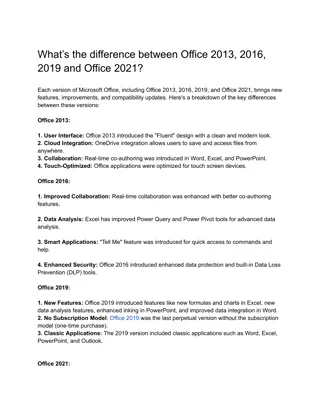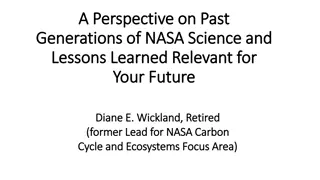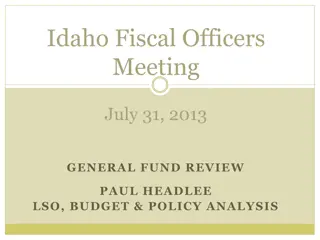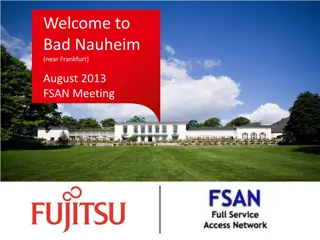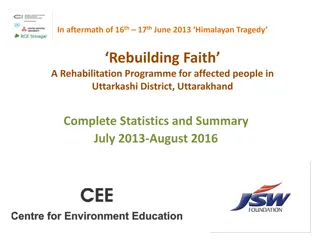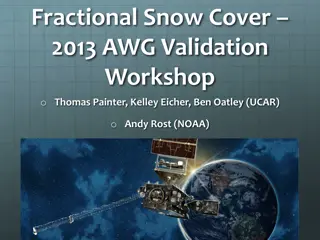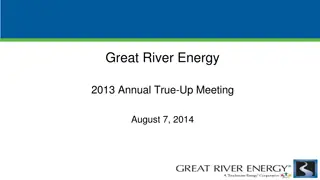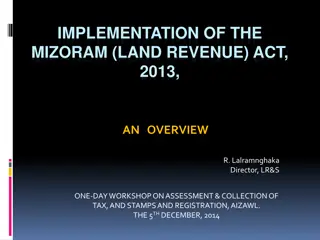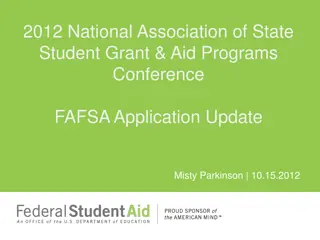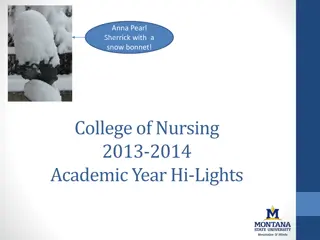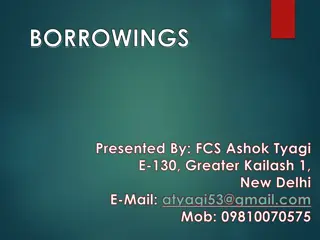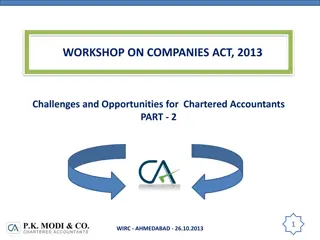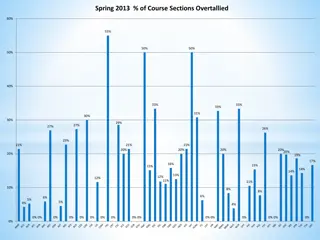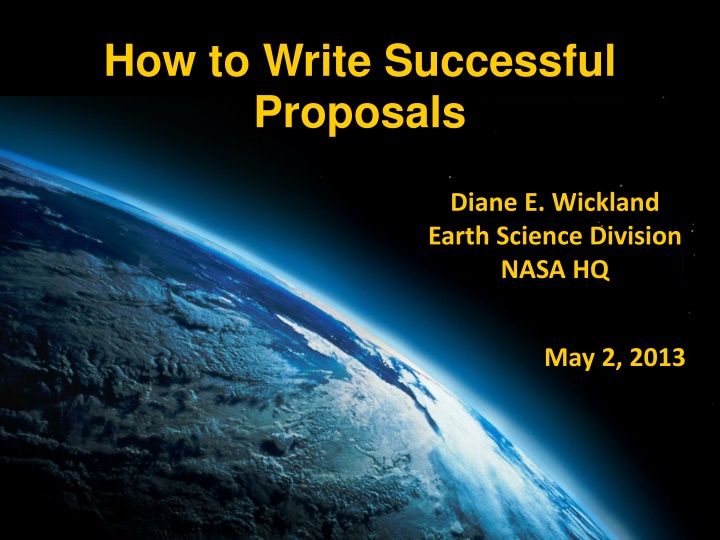
Crafting Winning Research Proposals: Tips for Success
"Learn valuable insights on writing successful research proposals, including being responsive to solicitations, providing informative content, considering peer reviewers, and using your pages wisely. Improve your proposal writing skills with expert guidance from NASA HQ."
Download Presentation

Please find below an Image/Link to download the presentation.
The content on the website is provided AS IS for your information and personal use only. It may not be sold, licensed, or shared on other websites without obtaining consent from the author. If you encounter any issues during the download, it is possible that the publisher has removed the file from their server.
You are allowed to download the files provided on this website for personal or commercial use, subject to the condition that they are used lawfully. All files are the property of their respective owners.
The content on the website is provided AS IS for your information and personal use only. It may not be sold, licensed, or shared on other websites without obtaining consent from the author.
E N D
Presentation Transcript
How to Write Successful Proposals Diane E. Wickland Earth Science Division NASA HQ May 2, 2013
Be Responsive Read and Understand the Solicitation Propose Research that Matches the Topics/Themes/ Tasks Solicited
Be Responsive Read and Understand the Solicitation Propose Research that Matches the Topics/Themes/ Tasks Solicited Do not try to make your favorite topic / latest new idea fit what was solicited Do not dust off you last, rejected NSF proposal and send it in
Provide Informative / Substantive Content Tell us* exactly what you propose to do (mission agencies fund specific activities, not broad concepts) Tell us* how you are going to do it with adequate detail regarding data, methods, analytical approaches, and products (we need to know if the approach is reasonable, sound and feasible) Tell us* why it is important (even if it is obvious, don t assume we know!) * us is the peer reviewers and NASA Program officials
Keep in Mind the Peer Reviewers Be careful what assumptions you might make about who will review your proposal
Keep in Mind the Peer Reviewers Be careful what assumptions you might make about who will review your proposal Do not assume all reviewers will be technical experts with deep expertise in your topic - Some will be, but others will NOT be Don t assume the reviewers know nothing; they will be scientists/engineers/science managers! - Don t patronize - Avoid highly technical jargon specific to a narrow field
Use Your Pages Wisely On average, over of the proposal s pages/text should describe your research plan
Use Your Pages Wisely On average, over of the proposal s pages/text should describe your research plan Unless there are highly unusual special circumstances, do not use more than 2 pages for background If you are offering a successor study or directly building on past work, do explain past accomplishments and what is new and different in your proposal (in the ~2-page background section)
Quality Matters Clear, articulate prose and illustrative easy to read figures are much appreciated by reviewers. Mistakes, typos, general sloppiness are noticed and often rewarded
Quality Matters Clear, articulate prose and illustrative easy to read figures are much appreciated by reviewers. Mistakes, typos, general sloppiness are noticed and often rewarded Make figures and captions clear, relevant, and large enough to be read Use the spill-chicker NUA Use complete sentences and paragraphs; do not outline or provide a brochure
Quality Matters Clear, articulate prose and illustrative easy to read figures are much appreciated by reviewers. Mistakes, typos, general sloppiness are noticed and often rewarded Make figures and captions clear, relevant, and large enough to be read Use the spell-checker NUA (no undefined acronyms) Use complete sentences and paragraphs; do not outline, make a brochure
Get a Second Opinion Have a colleague read the proposal for clarity, responsiveness, accuracy Read it yourself and as you do so try to think like a reviewer
But . . . There is no reward for writing a proposal any better than it takes to be above the line for funding
But . . . There is no reward for writing a proposal any better than it takes to be above the line for funding Unless you are new/early career scientist who could benefit from being noticed due to a truly excellent proposal
If you do only one thing . . . Propose research that directly responds to the topics called out in the Research Solicited section of the solicitation. Be Responsive!

